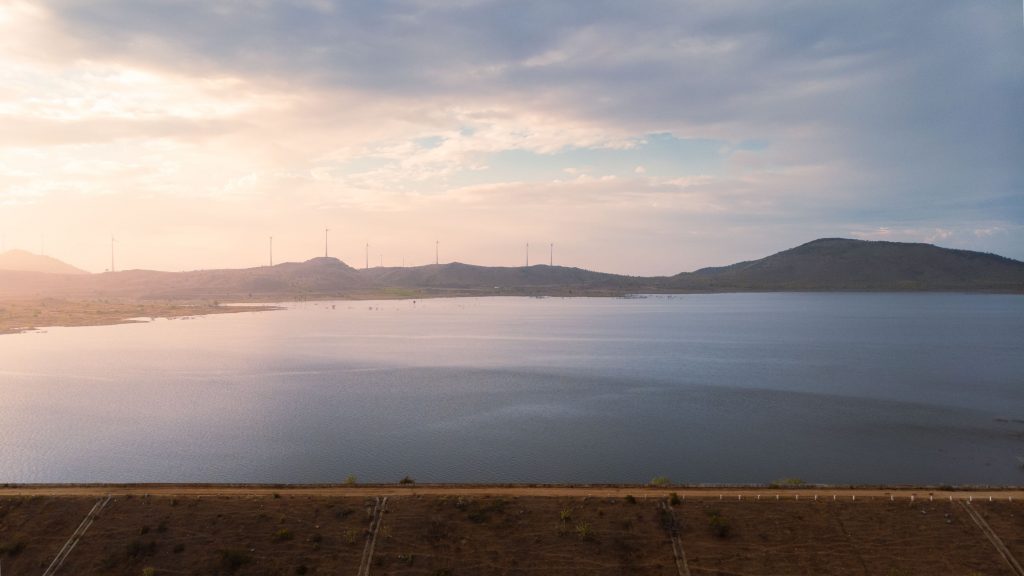Water is the cornerstone of agriculture, and effective management of this vital resource is key to ensuring the sustainability of farming practices. With increasing climate variability and the growing need for food production, water management in agriculture is more important than ever. At Ecowood Habitat by Ardini Farms, a premium managed farmland near the Gollapalli Reservoir, we incorporate a wide range of water-saving techniques to promote sustainable growth while maintaining environmental harmony.
The Importance of Water Management in Agriculture
Water management is critical for the success of managed farmlands, where optimizing water usage can significantly enhance productivity and conserve resources. Agriculture accounts for about 70% of freshwater consumption globally, meaning that any improvements in water efficiency directly impact both the land and the surrounding ecosystem. At Ecowood Habitat, our commitment to water management ensures that our managed farmlands remain fertile, productive, and sustainable.

Key Water Management Strategies
One of the most effective methods in modern agriculture is drip irrigation. This technique delivers water directly to the plant roots in controlled amounts, minimizing waste and reducing the risk of water evaporation. Drip irrigation is particularly useful for water-scarce regions, as it optimizes the available supply.
At Ardini Farms, our drip irrigation systems ensure that water is distributed evenly across the farmland, conserving up to 60% more water compared to traditional methods like surface irrigation. This not only saves water but also enhances crop growth by providing the right amount of hydration.
Drip Irrigation: Delivering Water Where It’s Needed
One of the most effective methods in modern agriculture is drip irrigation. This technique delivers water directly to the plant roots in controlled amounts, minimizing waste and reducing the risk of water evaporation. Drip irrigation is particularly useful for water-scarce regions, as it optimizes the available supply.
At Ardini Farms, our drip irrigation systems ensure that water is distributed evenly across the farmland, conserving up to 60% more water compared to traditional methods like surface irrigation. This not only saves water but also enhances crop growth by providing the right amount of hydration.
Rainwater Harvesting: Harnessing Nature’s Resources
Rainwater harvesting is another critical strategy for effective water management. By capturing and storing rainwater, farms can reduce their dependence on groundwater and other external sources. This method is particularly beneficial in areas with seasonal rainfall, allowing farms to accumulate and store water during rainy periods for use during drier months.
At Ardini Farms, rainwater harvesting systems are installed across the land, storing natural water to supplement irrigation needs. This practice not only saves water but also reduces the impact on local water supplies, contributing to a more balanced ecosystem.
Mulching: Keeping the Soil Moist
Mulching is a simple yet powerful technique to manage water in agriculture. By covering the soil with organic or inorganic materials, mulching helps retain moisture in the soil, reducing the need for frequent irrigation. Additionally, mulch can reduce soil erosion and protect crops from pests.
We use organic mulches at Ardini Farms, such as straw, leaves, and compost, to keep the soil moist and reduce water evaporation. This practice aligns with our commitment to eco-friendly farming methods, providing natural benefits to our farmland.
Soil Moisture Sensors: Monitoring for Optimal Water Use
Technology plays an important role in precision agriculture, and one of the most effective tools is the soil moisture sensor. These sensors provide real-time data on soil moisture levels, allowing farmers to adjust irrigation schedules to ensure plants receive the right amount of water without overwatering.
At Ardini Farms, soil moisture sensors are integrated into our irrigation systems to fine-tune water delivery. This not only conserves water but also ensures that crops are neither over- nor under-irrigated, promoting healthier growth and higher yields.
Sustainable Groundwater Management
Over-reliance on groundwater for agricultural irrigation can deplete resources, leading to long-term sustainability challenges. Sustainable groundwater management involves using groundwater only when necessary and employing techniques to recharge aquifers, such as rainwater harvesting and percolation ponds.
At Ardini Farms, we prioritize the sustainable use of groundwater. Through careful monitoring and balancing with other water sources like rainwater, we maintain a steady supply of water while preserving the natural aquifers.
Recycling Water: Making Every Drop Count
Water recycling is a forward-thinking practice that reduces water waste. Recycled water is treated and reused for agricultural purposes, minimizing the need for fresh water while ensuring that crops receive adequate hydration.
At Ardini Farms, we have introduced small-scale water recycling systems to irrigate our crops and maintain sustainability. By reusing water within the farm, we reduce our overall water footprint while maintaining productivity.
Percolation Pits and Check Dams: Enhancing Water Infiltration
Percolation pits and check dams are essential techniques for improving water infiltration into the soil and recharging groundwater levels. These small, earth-based structures trap surface runoff, allowing water to percolate into the ground, reducing soil erosion, and improving the water table.
Ardini Farms has incorporated check dams and percolation pits across our landscape to retain water, boost groundwater recharge, and promote soil moisture retention. These structures ensure long-term water availability for our farming operations.
Drought-Resistant Crop Varieties
Planting drought-resistant crop varieties is another effective strategy for water management, particularly in regions prone to water scarcity. These crops require less water for growth, making them an ideal choice for sustainable farming.
At Ardini Farms, we carefully select drought-resistant crops that thrive in our specific climate. By choosing crops suited to local conditions, we optimize water use and ensure consistent yields, even during dry periods.
Community Awareness and Education
Effective water management in agriculture is not just about techniques but also about raising awareness. Educating farmers and communities about the importance of conserving water and adopting efficient irrigation practices ensures that these techniques are widely adopted.
Ardini Farms engages with the local community, providing training and resources to encourage sustainable water use in agriculture. By fostering collaboration and knowledge sharing, we aim to create a water-conscious farming ecosystem.
The Role of Gollapalli Reservoir in Supporting Ecowood Habitat
The Gollapalli Reservoir, located near Ecowood Habitat, plays a crucial role in sustaining the water needs of our managed farmlands. This natural water body provides a sustainable irrigation source, supporting both our farming operations and the local environment. By maintaining and protecting the reservoir, we ensure that our managed farmlands continue to thrive with minimal environmental impact.
The Future of Water Management at Ecowood Habitat
At Ecowood Habitat by Ardini Farms, we are constantly looking to the future, seeking innovative ways to enhance water efficiency on our managed farmlands. By integrating renewable energy sources into our irrigation systems and exploring new technologies, we are committed to creating a model of sustainable water management that can be replicated in other regions.
Conclusion
Water management in agriculture is essential for the long-term success of managed farmlands, and Ecowood Habitat by Ardini Farms is at the forefront of implementing sustainable strategies. From rainwater harvesting and drip irrigation to greywater recycling and community involvement, we ensure that our managed farmlands remain productive while conserving valuable water resources. These efforts not only enhance the sustainability of our farming operations but also contribute to the well-being of the entire ecosystem.



